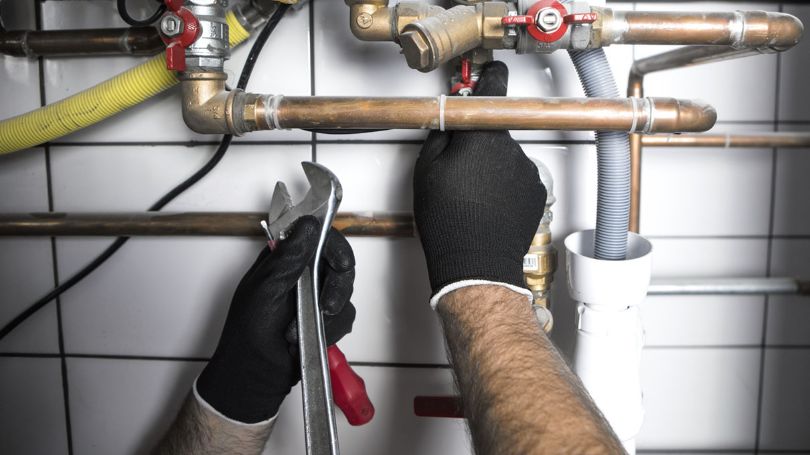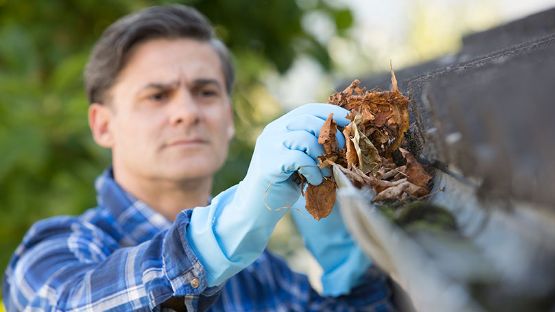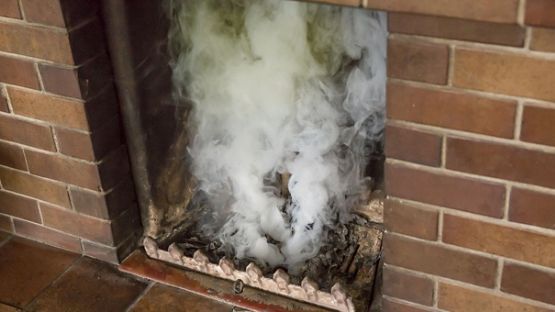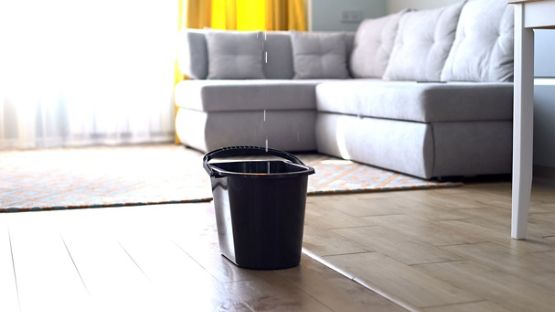Maintaining your home isn’t just about curb appeal and interior appearances; it’s about protecting your investment and ensuring that your living space remains safe and comfortable.
Whether you own a house, condo or rent, regular home maintenance can help you avoid costly repairs and even reduce your insurance premiums.
In this guide, we’ll walk you through an ultimate home maintenance checklist that covers all the essentials.
Key takeaways
- Whether you own a house, a condo or rent your living space, regular home maintenance is important for keeping your property in top condition and ensuring a safe and comfortable environment.
- Comprehensive home maintenance is challenging to tackle all at once. Break it down into smaller, manageable tasks throughout the year to stay on top of it without feeling overwhelmed.
- A well-maintained home prevents costly issues. Regular maintenance helps avoid larger disasters, reduces the risk of insurance claims and protects your investment by preserving resale value over time.
Why home maintenance is important
The changing seasons bring unique challenges to Canadian homes. Whether it's winter’s freezing temperatures, extreme heat or summer storms, your home can take a beating year-round.
Regular home maintenance helps you stay on top of small repairs that can prevent bigger problems down the road. Tasks like checking carbon monoxide detectors, replacing furnace filters and inspecting exterior faucets can protect your property, your wallet and your health and safety.
Maintaining your home is also important for insurance purposes. Well-kept homes reduce the likelihood of accidents and costly claims, which can help you save money on premiums. Additionally, if you’re a renter or condo owner, you’ll need to understand the balance of responsibility between you and your landlord or condo board.
Home maintenance: Seasonal checklists
Let’s break down your home maintenance checklist by season. This makes it easier to keep up with important tasks throughout the year, keeping your home in tip-top shape. Every home is different so ignore any tasks that aren't relevant to your property and add in any that are missing. Lastly – always consider seeking professional help to ensure your home is maintained with professional equipment and safety standards.
Spring
As winter retreats, it’s time to get your home ready for the warmer months. Here’s your spring maintenance checklist:
- Inspect the roof for missing shingles or damage
- Clean gutters to remove debris
- Wash windows inside and out
- Check doors and windows for damage or wear and add weather stripping if needed
- Inspect exterior faucets for leaks or damage
- Test smoke alarms and carbon monoxide detectors
- Replace your HVAC system’s air filter
- Deep clean the house, especially high-traffic areas like the kitchen and bathroom:
- Dust and wipe down all surfaces, including baseboards, ceiling fans and light fixtures
- Clean windows and window sills
- Vacuum and mop all floors, including under furniture
- Scrub kitchen appliances, including the inside of the oven, microwave and refrigerator
- Clean and disinfect countertops, sinks and backsplashes
- Deep clean the bathroom: scrub grout, clean shower heads and sanitize toilets
- Flip mattresses and clean beneath beds
- Wash or dry clean curtains, bedding and any fabric upholstery
- Store seasonal clothing and organize closets
- Wipe down doors, door frames and handles
- Clean vents and exhaust fans
- Clean and organize cabinets and drawers
- Polish furniture and fixtures
- Spot clean carpets and rugs or send rugs out for cleaning
- Check the pantry for expired dry goods and reorganize shelves
- Clean and disinfect trash cans
- Launder pillows and cushions
Learn more about spring home maintenance.
Summer
With the warm weather in full swing, summer is the perfect time for outdoor tasks:
- Inspect door screens for holes and repair as needed
- Clean and inspect exhaust fans in the kitchen and bathroom
- Check for water leaks under sinks or in the basement
- Vacuum bathroom vents to ensure good airflow
- Test your fire extinguishers and replace them if they’re expired
- Review your home’s insulation to prepare for winter
Fall
Fall is about getting your home ready for the cold months ahead:
- Clean gutters to remove fallen leaves and prevent water damage
- Inspect the furnace filters and replace them to ensure proper heating
- Check your roof and repair any damaged shingles
- Test and replace batteries in smoke alarms and carbon monoxide detectors
- Replace caulking around windows to prevent drafts
- Clear loose nails from the exterior
- Inspect exterior faucets and ensure they’re properly sealed to prevent freezing
- Check the foundation for any cracks or signs of a leaky basement
- Keep gutters clean to avoid water damage to your home’s exterior
- Inspect your water heater annually and replace it if it’s old or malfunctioning
Learn more about tending to your home for fall.
Winter
Canadian winters can be harsh, so your home needs extra care during these months:
- Check for frozen pipes and ensure they’re insulated
- Clear snow from your roof and ensure no ice dams form
- Inspect your heating system and water heater to prevent unexpected breakdowns
- Keep doors and windows properly sealed to keep the cold out
- Make sure your carbon monoxide detectors are functioning
Ad hoc maintenance outside seasonal checkups
While following this four season checklist will set you up for success, there are certain occasions where more on-the-spot maintenance is recommended:
- After storms and major weather events: Inspect your roof, windows, chimneys and doors for wear and tear after storms or major weather events
- During a heatwave: Inspect your air filter and HVAC system to ensure they’re functioning properly and check outdoor air conditioning units for debris or obstructions
- If you plan on using fireworks: Before any fireworks event, prepare your property: Clear flammable debris, secure items like firewood and propane tanks and use spark guards on vents and chimneys to prevent fire hazards
- Following pest infestations: Inspect for structural damage, such as termites or rodents in walls or attics and replace compromised materials.
- If you’re putting your home up for sale: Conduct a thorough home inspection, addressing issues like minor repairs, painting or upgrading furnace filters to enhance air quality and appeal to buyers.
Garden and landscape maintenance checklist
For homeowners with gardens, outdoor home maintenance requires special attention to both the exterior of the home and the landscaping. The full extent of you garden maintenance (especially planting, pruning and protection) will depend on how avid a gardener you are.
Nevertheless here’s a list of the more common outdoor maintenance tasks for people with gardens:
- Lawn care: Mow the lawn regularly, trim edges and water the grass
- Weeding: Remove weeds from flower beds, vegetable gardens and pathways
- Pruning: Trim overgrown bushes, trees and hedges to promote healthy growth
- Mulching: Add fresh mulch to garden beds to retain moisture and improve soil quality
- Check for water leaks: Inspect outdoor faucets, hoses and irrigation or sprinkler systems
- Pest control: Look for signs of pests in the garden and take preventative measures
- Clean outdoor furniture: Wipe down patio furniture and store it during off-seasons
- Garden tools maintenance: Sharpen shears, clean tools and store them properly
- Inspect fences and gates: Repair any loose nails or broken panels
- Inspect walkways: Check for cracks or uneven surfaces and repair as needed
- Check exterior lighting: Replace burnt-out bulbs and clean light fixtures
- Power wash: Clean decks, patios, driveways and siding to remove dirt and mildew
- Planting and seasonal garden prep: Rotate plants seasonally and fertilize as necessary
These tasks will keep both the exterior of the home and the garden well-maintained throughout the year.
Home maintenance considerations for condo owners
Condo owners share responsibilities with the strata or condo board, but you’re still responsible for maintaining your personal unit. Your strata or condo bylaws will spell out exactly what maintenance you are responsible for. You may even be required to provide proof of completed work.
Here are some key tasks that should be completed by either you or your condo board:
- Inspect furnace filters (if applicable) or arrange for maintenance if your building has central heating.
- Ensure exhaust fans in your bathroom are working properly.
- Test ground fault circuit interrupters to prevent electrical hazards.
- Keep your balcony or outdoor space clear of debris and follow any condo regulations for seasonal prep.
- Have gas fireplaces cleaned and inspected.
- Check for pests and inform your condo board promptly if there are any signs of infestation.
- Understand what maintenance is (and is not) provided by your condo or strata. It may include:
- Annual air duct cleaning
- Fire alarm testing and maintenance
- Window cleaning
- Maintenance of shared areas including hallways and groundskeeping
Home maintenance considerations for renters
Renters often have fewer maintenance tasks and may find that some of what’s listed above doesn’t apply to their rental property. However, that doesn’t mean that renters are completely off the hook. Staying on top of small issues helps maintain the property and ensures you get your damage deposit back.
Work with your landlord to ensure the following tasks are managed, with a clear understanding of who’s responsible for what:
- Test smoke alarms and carbon monoxide detectors monthly
- Replace caulking around bathroom fixtures if there’s noticeable wear
- Check for water leaks under sinks and report any issues to your landlord
- Clean and maintain door screens
- Wash windows to avoid grime buildup
- Vacuum bathroom fans and make sure they’re in good working condition
- Do an occasional deep clean of your rental property (see what that entails in the spring list above)
- Check for pests and inform your landlord promptly if there are any signs of infestation
- Ensure lawns are maintained with no overgrowth of plants
- Remove snow from any driveways and walkways as soon as possible to avoid ice-buildup and flooding
Must-have home maintenance tools
Here’s a list of essential tools that every renter, homeowner or condo owner should have on hand for routine upkeep:
- Furnace filters
- Air filter replacements
- Caulk gun and scrapers to replace caulking
- Snow shovel
- Ladder and safety harnesses for roof inspections
- Fire extinguishers and smoke alarms
- A plunger for any clogs and a drain snake for any blockages
- General cleaning supplies like:
- Rags, cloths, sponges, etc. (pro-tip: washable ones are more cost-effective)
- All-purpose cleaner and any other specialty cleaning products (i.e. glass, stainless steel)
- Vacuum cleaner, mop, broom
- Toilet bowl cleaner and brush
- Rubber gloves
- An emergency preparedness kit for worst-case scenarios that may require home evacuation
Home maintenance and insurance: How they’re connected
Regular home maintenance is important not only for the comfort of your living space but also for your home insurance, condo or tenant’s insurance, which cover sudden and accidental damage. General wear and tear is not covered by insurance so staying on top of it will help ensure your property maintains its value as well as preventing small problems from becoming big ones.
Well-maintained properties are also less likely to experience major damage. For example, checking carbon monoxide detectors, replacing furnace filters and routinely checking for water leaks could help prevent costly insurance claims down the road.
Maintaining your home also helps to avoid uninsurable damages. For instance, ignoring a small leak that turns into major water damage could leave you footing the repair bill. Stay on top of repairs and document major changes so that your insurer can adjust your policy as needed.
Wrapping up: Consistent maintenance keeps you safe and comfortable
By following this ultimate home maintenance checklist, you’ll be able to keep your property in excellent condition while protecting your investment and saving money on repairs. Regular home maintenance also has the added benefit of potentially reducing your home insurance premiums. Set up a monthly home maintenance checklist today and keep your home in tip-top shape year-round.













